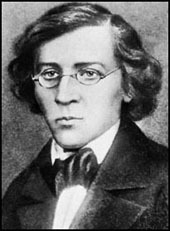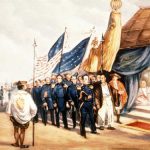The name is unknown to most of us in the 21st century, and seems to be in a state of banishment from the minds of some of today’s historians too. Yet Nikolai was, as a revolutionary, greatly admired by, among other, Karl Marx himself.
He was born in 1828, and never saw the twentieth century, or its dreadful beginnings in Russia. As the son of an Orthodox priest, he grew to hate injustice, and hoped in the 1850s that Tsar Alexander’s reforms might improve conditions for the serfs, and go some way towards removing injustice. His hopes were in vain, for though Alexander introduced the Emancipation of the Serfs, results were inconclusive and disappointing. The rebel in Nikolai Gavrilovitch itched to overthrow the Tsar and seek a total change of government.
He believed strongly that no hope could be placed with the ‘liberals’, as ‘liberals would always betray the working class’, and in this he was strangely prescient. Being in prison for his views in 1862, he wrote a novel, What is to be done? which could perhaps have omitted the question mark. By now he become an ascetic, dismissing the pleasures of life such as sex, family life and ties and culinary delights. Instead, he dedicated himself to the life of a full-time revolutionary.
He became the idol of a generation of rebels, though iron self-will and devotion to misty hopes of reform and change in his vast country. His novel impressed everybody, one revolutionary theorist calling at a ‘Gospel’; Kropotkin named it ‘the banner of Russian youth’, and, most important of all, Lenin himself said that reading the book ‘completely reshaped my life’, and that this was a book ‘that changes one for a lifetime’. He added, perhaps needlessly, that the book shows what a revolutionary must be like. But some authorities did not agree, and in the first year of the novel’s publication Chernyshevsky was arrested ‘for subversion’ and was taken off to Siberia for imprisonment. He stayed there until 1863, when he was released, but died, having in his own opinion achieved nothing, at the age of fifty-five.









Leave A Comment